SUMMARY
This is AI generated summarization, which may have errors. For context, always refer to the full article.
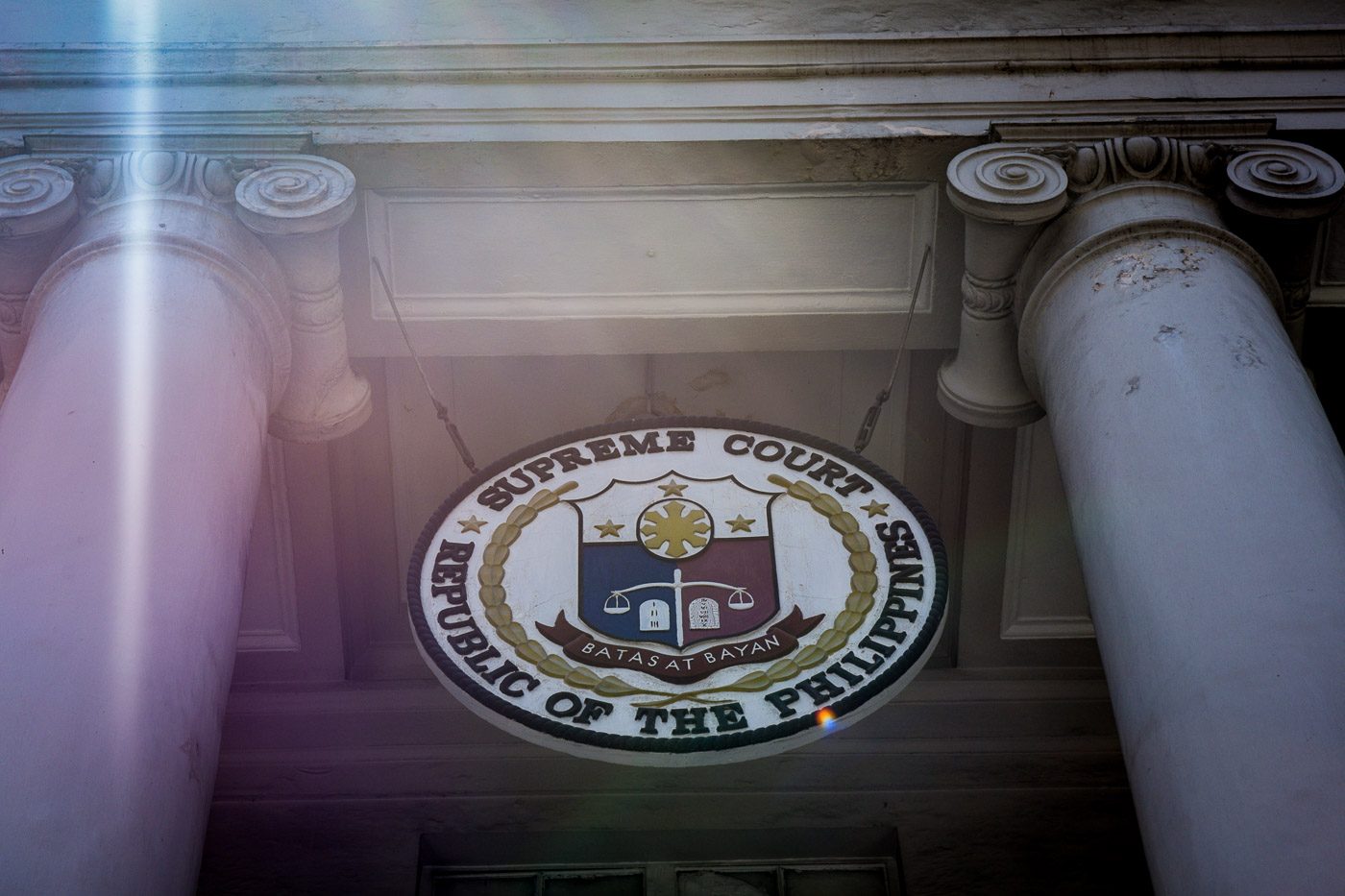
MANILA, Philippines – Justices of the Supreme Court (SC) promised judicial reforms that they would institute should they be chosen as the next chief justice of the Philippines.
The applicants made the promises when the Judicial and Bar Council (JBC) interviewed them on Thursday, August 16. (READ: #CJSearch: How did aspirants vote on key Supreme Court decisions?)
On Monday, August 20, the JBC will deliberate on who to put on the shortlist to be submitted to President Rodrigo Duterte.
Associate Justice Teresita Leonardo de Castro Appointed 2007, 2nd most senior incumbent justice Retiring October 2018
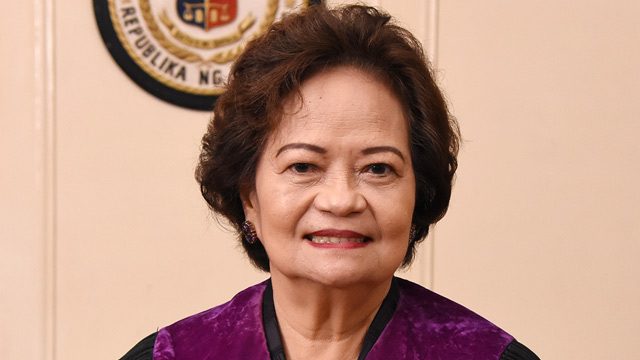
- Continue work on digitization of court cases, such as the Judicial Case Management System which will record and monitor progress of cases from the time of filing at the lower court. De Castro said she started the work on the Enterprise Information Systems Plan, the pet project of ousted chief justice Maria Lourdes Sereno.
- Continue work on digitizing the court’s administrative process through the Enterprise Resource Planning System. Administrative matters such as finances, filing for leaves, and others would go digital. De Castro said this was halted when she was removed as committee chair during Sereno’s term.
- Continue work on training judges, justices, and personnel to be gender-sensitive
- Fill up the remaining slots of judges in the family courts, and finish organizing the rest of the family courts in the country
- Finalize the amendments to the rules on children in conflict with the law, as well as review the rules on using children as witnesses
- Reorganize the Ethics and Ethical Standards Committee in the SC. De Castro said that when Sereno came in, the committee was not reorganized which would have efficiently handled complaints against SC justices.
(READ: #CJSearch: Is it worth appointing De Castro who has only 2 months to serve?)
Associate Justice Diosdado Peralta Appointed 2009, 3rd most senior incumbent justice Retiring March 2022
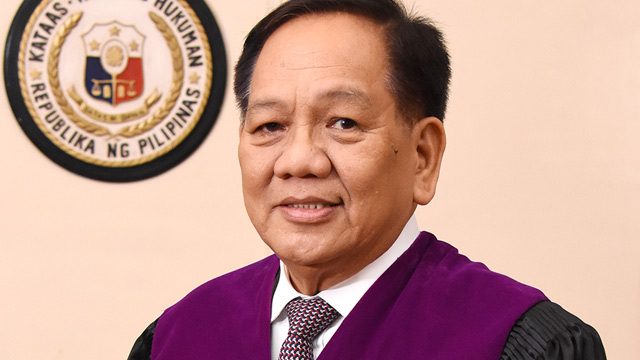
- Be more agressive in initiating investigations into judges whose decisions give the impression that corruption or gross negligence have been committed
- Hire more contractual personnel in the Office of the Court Administrator to help conduct judicial audits and smoke out corrupt judges and justices
- Review the rules on continuous trial in drugs cases, because the sheer volume of such cases make it “humanly impossible” to terminate trial within the required 180 days
- Adopt continuous trial in civil cases, citing the increase in compliance rate of lower courts to expedient disposition of cases since continuous trial was adopted in criminal cases
- Enhance the skills training of judges so they can better respond to pleadings that only seek to delay the procedure
(READ: #CJSearch: Is Peralta front-runner for chief justice?)
Associate Justice Lucas Bersamin Appointed 2009, 4th most senior incumbent justice Retiring October 2019
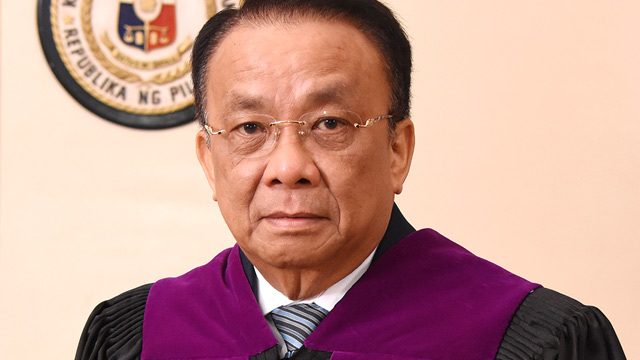
- Enhance the power of the JBC in vetting applicants to posts in the judiciary. Enable the JBC to expand publication of applications so the public can send their comments or opposition to applicants.
- Disciplinary cases against judges and justices should be delegated to the Court of Appeals. Enhance the Integrated Bar of the Philippines (IBP) in its capacity to discipline lawyers.
- Strengthen the Philippine Judicial Academy (Philja) so it can continue to train judges and justices. Training should be skills-based more than knowledge based.
- Expand publication of SC decisions. Enable the SC to print more books to distribute to judges in far-flung areas.
- Improve infrastructure of trial courts
- Conduct further studies into the rules on mediation. Bersamin said he favors a system where the judge can stay on the case until a final settlement is reached. The SC is currently looking into the Canadian model where the judge is removed immediately after the first effort fails; Bersamin said he wants to find a way to reconcile this with Philippine conditions.
- Adopt a more stringent rule on filtering cases that would reach the SC, as some cases “are better answered when they start at the lower courts.” Bersamin said the SC has been lax, even allowing cases that have procedural flaws just because of their “transcendental importance.”
(READ: #CJSearch: Bersamin defends rise in wealth during JBC chief justice interview)
Associate Justice Andres Reyes Jr Appointed 2017, 2nd most junior incumbent justice Retiring May 2020
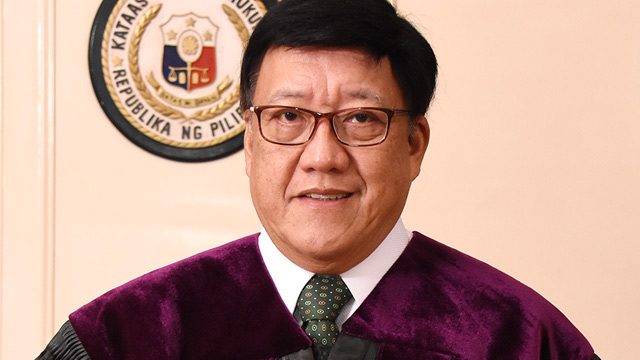
- Focus on addressing the problem of delays in disposing cases
- Find a way to get more funding for the judiciary. Reyes said as Court of Appeals presiding justice, he was able to secure more budget for the appellate court. “If I could just exhibit the same passion to higher authorities like the President or the Department of Budget and Management, perhaps they would allot more funds for the judiciary,” he said.
- He does not believe that the SC should interfere in the acts of Congress, a co-equal branch of government. Without expressing whether he favors it or not, Reyes said judicial activism exists in the country insofar as the Constitution allows the SC to review grave abuse of discretion that may have been committed by the other branches.
- Reyes’ statements indicate his willingness to be hands off on the acts of the two branches of government. “Sometimes, you allow the wisdom of the law to first be implemented before you sound it off and declare it as unconstitutional. Sometimes you defer to legislative intent,” Reyes said.
(READ: #CJSearch: Reyes says long career in judiciary offsets seniority)
The fifth applicant is Tagum City, Davao Judge Virginia Tehano-Ang who admitted to the JBC that her application for chief justice was just an accident.
Ang’s interview proceeded and she was asked to clarify a reported traffic altercation and other details of her work as a judge. She was told that her interview would be valid for a year should she apply for other posts for justice. – Rappler.com
Watch the interviews here:
LIVE: JBC interviews Supreme Court Chief Justice aspirants
Read other stories from the interviews:
- #CJSearch: How did aspirants vote on key Supreme Court decisions?
- #CJSearch: Bersamin defends rise in wealth during JBC chief justice interview
- #CJSearch: Is Peralta front-runner for chief justice?
- #CJSearch: Reyes says long career in judiciary offsets seniority
- Oops! Davao judge mistakenly applies for chief justice
- #CJSearch: Is it worth appointing De Castro who has only 2 months to serve?
Add a comment
How does this make you feel?
There are no comments yet. Add your comment to start the conversation.